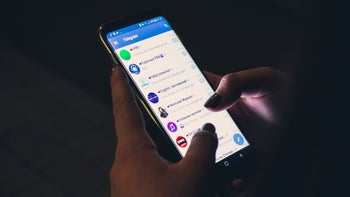Telegram rolls out concerning peer-to-peer login program in exchange for free Premium subscriptions

For many users who have sought out alternatives to using iMessage on iPhone, or Meta-owned applications such as WhatsApp, Telegram has always been a privacy-minded alternative that often spearheads fresh messaging features. However, there is a new feature that the platform has launched that is raising major concerns.
Telegram recently rolled out a "Peer-to-Peer Login Program" (P2PL). Basically, this program is designed to help users in locations where SMS is not very reliable receive OTPs (One-Time Pin) codes through other Telegram users. In other words, program participants' phone numbers become a relay for pins to be sent via SMS to help other Telegram users log in.
As helpful and innovative as this might sound, there is a catch. As outlined in the terms of the program, should you enroll, Telegram will tap into your number up to 150 times a month for these SMS messages to be sent out. This makes you solely responsible for any carrier fees that may be incurred, which may not be a big deal if these are being sent within your own location but may become costly if the recipients are international.
The reward for this program is a free Telegram Premium subscription, which normally costs $4.99 a month and unlocks extras like larger file uploads and faster downloads. While it is great that Telegram is exploring ways to make their premium tier more accessible, are the risks worth it? I am inclined to say no, but I'm curious what you think.
As helpful and innovative as this might sound, there is a catch. As outlined in the terms of the program, should you enroll, Telegram will tap into your number up to 150 times a month for these SMS messages to be sent out. This makes you solely responsible for any carrier fees that may be incurred, which may not be a big deal if these are being sent within your own location but may become costly if the recipients are international.
Furthermore, there is the issue of privacy. Participation in this program means that both you and the recipient of the OTP message can see each other's phone numbers. This can open you up to receiving unwanted messages and possibly harassment from someone whose number you unknowingly assisted with. Telegram's terms clearly state that they're not liable, leaving program participants vulnerable to potential privacy breaches.
The reward for this program is a free Telegram Premium subscription, which normally costs $4.99 a month and unlocks extras like larger file uploads and faster downloads. While it is great that Telegram is exploring ways to make their premium tier more accessible, are the risks worth it? I am inclined to say no, but I'm curious what you think.
Feature photo by Christian Wiediger on Unsplash










Things that are NOT allowed: